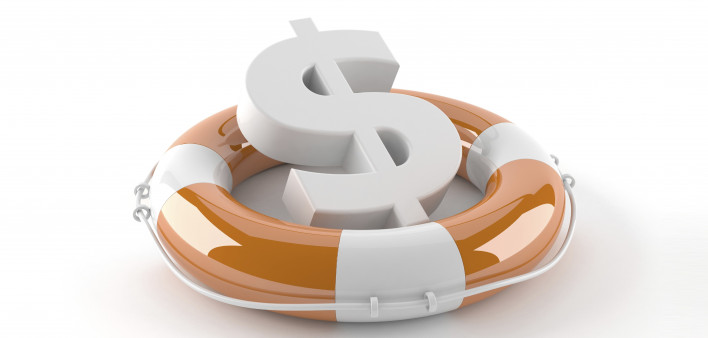Philanthropic donations to HIV programs from the private sector basically remained flat in 2020—the dawn of the COVID-19 era—and reveal “a dangerous reliance on a shrinking pool of funders,” according to a report from Funders Concerned About AIDS (FCAA) based on the latest funding data available.
But for the first time in 20 years, the Bill & Melinda Gates Foundation did not occupy the top spot of HIV funders. That distinction went instead to Gilead Sciences, which manufactures numerous blockbuster HIV meds. A $116 million increase from Gilead propelled the pharma giant to the top, according to an FCAA press release on the report.
Report Launch: Philanthropic Support to Address HIV and AIDS in 2020 - https://t.co/T2TI8Bky61 pic.twitter.com/CE2zjaq3zK
— FundersConcernedFCAA (@FCAA) May 19, 2022
Specifically, HIV-related philanthropy totaled $707 million in 2020, representing a mere 1% increase from the previous year. The report, titled Philanthropic Support to Address HIV and AIDS in 2022, looked at more than 5,000 grants awarded by 323 foundations in 10 countries.
“The concentration of funding at the top is not a new headline, but it became starker in 2020,” said Channing Wickham, FCAA’s board chair and executive director of the Washington AIDS Partnership, in the press release. “This is an enormous concern for the stability of HIV-related philanthropy. A shift in resources away from HIV or other action with economic fallout from one of these top grant makers could devastate future funding levels.”
According to the FCAA report, below are the top 10 HIV-related philanthropic funders of 2020 along with their approximate contribution
- Gilead Sciences — $283 million
- Bill & Melinda Gates Foundation — $212 million
- Wellcome Trust — $37 million
- ViiV Healthcare — $36 million
- Elton John AIDS Foundation — $15 million
- MAC Viva Glam Fund — $12 million
- Broadway Cares/Equity Fights AIDS — $11 million
- Children’s Investment Fund Foundation — $9 million
- Aidsfonds — $7 million
- AIDS United — $7 million
Gilead was also recognized as the top funder in several other categories, including addressing the COVID-19 pandemic and supporting Black, Indigenous and people of color communities in the United States.
It might look like private funding for #HIV was steady in 2020, but the data in @FCAA’s new report shows a dangerous reliance on a shrinking pool of funders. This is an enormous concern for the stability of HIV-related #philanthropy https://t.co/Zzs5MXWUqm #FundHIVFight #HIV pic.twitter.com/53e1YQGpeD
— FundersConcernedFCAA (@FCAA) May 22, 2022
“We believe that real progress is only possible through collaboration and partnership,” noted Daniel O’Day, Gilead’s chairman and chief executive officer, in a statement by Gilead Sciences. “That is why we invest in the extraordinary efforts our partners are undertaking to reach underserved populations, eliminate barriers to care and educate communities. It is inspiring to see the work that goes on across these groups, and we are proud to play a role in supporting them.”
The FCAA report authors note that their analysis covers a period spanning not only the emergence of COVID-19 but also the escalation of racial tension in the United Sates and political tension throughout Europe and Russia. The authors also point out that, although it’s clear that these issues add stress to an “already unstable environment,” it’s too early to predict how they—not to mention the war in Ukraine—will affect private funding for HIV.
In 2020, #HIV related philanthropic funding for persons with #psychosocial disabilities grew for the first time in years, likely an intentional funding strategy responding to heightened, #COVID induced loneliness & #MentalHealth challenges. https://t.co/Zzs5MXWUqm#FundHIVFight pic.twitter.com/0b6qEhqmoi
— FundersConcernedFCAA (@FCAA) May 21, 2022
Of note, the report found that about $66 million (9%) of the year’s HIV philanthropy was earmarked for the COVID-19 epidemic.
“The efforts of HIV-informed funders to address the COVID-19 pandemic was a bright spot in this year’s report,” said Caterina Gironda, FCAA’s research and program manager and the report’s lead researcher and author. “Grantmakers understood the critical need for flexible and intersectional funding that is sensitive to the reality of people living multi-issue, multi-identity lives.”
Part 1/2 Congrats to the #top20 global #HIV funders named in this year’s #resourcetracking report. These orgs = 92% of total HIV-related funding in 2020. @GileadSciences @gatesfoundation @ViiVHC @MACVIVAGLAMFund @ejaf @wellcometrust @BCEFA @CIFFchild @Aidsfonds @AIDS_United pic.twitter.com/2x4CdGSB5B
— FundersConcernedFCAA (@FCAA) May 23, 2022







Comments
Comments